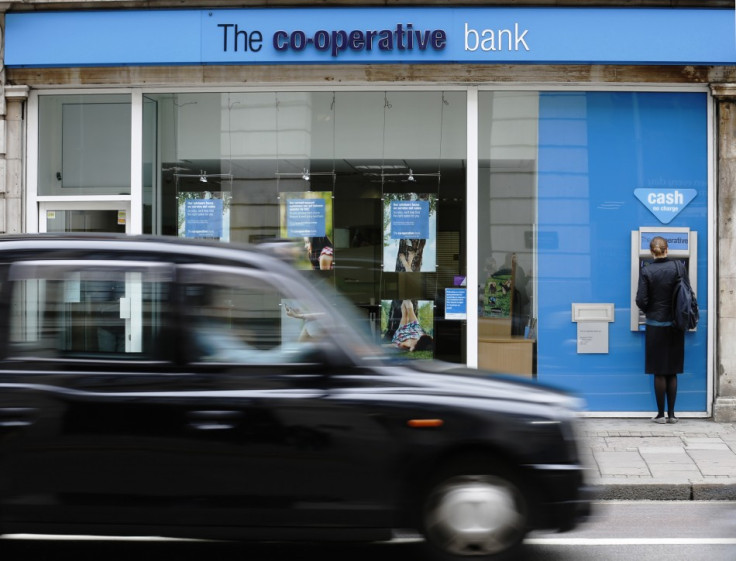Co-Operative Bank Carves Off £14.5bn in 'Bad Bank' Toxic Loans

Troubled Co-operative Bank will carve off its toxic loan assets into a so-called 'bad bank' worth £14.5bn, as it attempts to steer into calmer waters.
These assets will then be wound down or sold off under the Co-Op's plan to seal a £1.5bn (€1.77bn, $1.57bn) capital gap on its balance sheet, which will negate any need for a government bailout.
Rating agency Moody's downgraded the Co-Op to junk status and sounded the siren that it may need a taxpayer rescue, though the bank firmly rejected that it required state help. Barry Tootell, who was the Co-op's chief executive, resigned after the downgrade.
The Co-op said its plan will raise £1bn capital in 2013 and a further £500m in 2014 by getting its junior bondholders to swap the bank's debt for shares.
"Whilst we recognise that the short-term outlook is challenging, the measures we are announcing today mean we now have a credible plan for addressing the capital shortfall we face and can turn our attention to managing our non-core assets down and restructuring our core bank," said Niall Booker, Co-op chief executive.
Raising the money will improve the Co-op's core tier 1 ratio to over 9% by the end of 2013, which will keep rising thereafter. The Bank of England's Prudential Regulation Authority, the financial sector watchdog, is demanding a ratio of at least 7% from all banks.
The Co-op is one of the UK's smallest banks with 4.7 million customers and a 1.5% share of the current account market. However it is a household name in Britain, as the wider group includes supermarkets, funeral services and pharmacies.
© Copyright IBTimes 2025. All rights reserved.






















